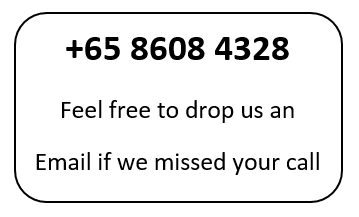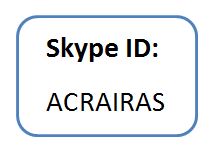In Singapore, ECI Tax (also known as the Estimated Chargeable Income Tax) is something that all Singapore Businesses need to comply with. If you are a foreign entity, you may not be familiar with this Singapore’s accounting and taxation terms. Did you know that many entrepreneurs in Singapore are not too sure why and when they have to file the ECI?
So what does ECI mean? Well, in layman terms, this is the company’s annual turnover minus expenses for the Year of Assessment (YA). In this post, ECI will be made easy to understand.
1. Who do I File my ECI with AND by When Must I File it?
First and foremost, you must file the ECI with the tax authority of Singapore also known as the Inland Revenue Authority of Singapore (“IRAS”), within 3 months after the end of your company’s financial year.
For example, if your company’s financial year end is 31 December 2013, you must file your ECI by 31 March 2014.
2. Why should You File Your ECI?
Filing your ECI in a timely and accurate manner is one of the annual corporate compliance requirements in Singapore.
Your ECI submission plays an important role in the big picture of things. Did you know that this helps policymakers have a feel of how various industries and businesses are doing? This information in turn helps them adjust policies, which is beneficial to both your firm and industry.
3. Did you know that Early Bird Gets To Enjoy Certain Benefits?
Haven’t you heard that IRAS awards companies and businesses who submit their ECI statements early? How is that so? Well, business owners have the option to pay their Singapore Corporate Taxes in installments. The earlier these ECI statements were submitted, the longer you could take to make installments payment to IRAS.
How this works? Let me share with you an example. With the same financial year end of companies, these firms who e-file their ECI by the 26th of the 3rd month from the financial year end would pay their taxes via 6 installments. However, those who file 1 month earlier on the 26th of the 2nd month after the financial year end enjoys 8 payment installments. As for those who submit it one month after the financial year end, they will get 10 installments.
4. Tax Filing Rules Had Changed – Not Everyone Has to File it!
With effect from YA 2013, companies whose financial year end falls on or after October 2012 are given a special administrative concession.
Under this concession, companies whose financial year ended on or after October 2012 are not required to submit ECI if both the following two conditions are fulfilled:
- Company’s Annual Revenue is not more than S$1 million AND
- Company has got a “NIL” ECI.
5. What happens if You did not File ECI?
If your company didn’t file the ECI within 3-month from the financial year end, did you know that IRAS will issue you a Notice of Assessment (NOA)? This would be based on its estimation of your income!
When that happens and if you do not agree with IRAS’ estimated assessment, your company will have one month from the date of the Assessment to submit a written objection. Otherwise, that assessment would be recognized as final.
6. Who should File ECI?
You know as much as I do that your company has to file the ECI within 3 months after the end of its financial year end, don’t you? However, let me tell you that if you do not know how file for ECI, you should engage professional firm in Singapore like J Accounting Services who are experts and specializes in this area of Company Tax Compliance Services.
Business Owners, it’s always better to get things done right the first time than to correct the mistake later! Prevention is better than cure!




